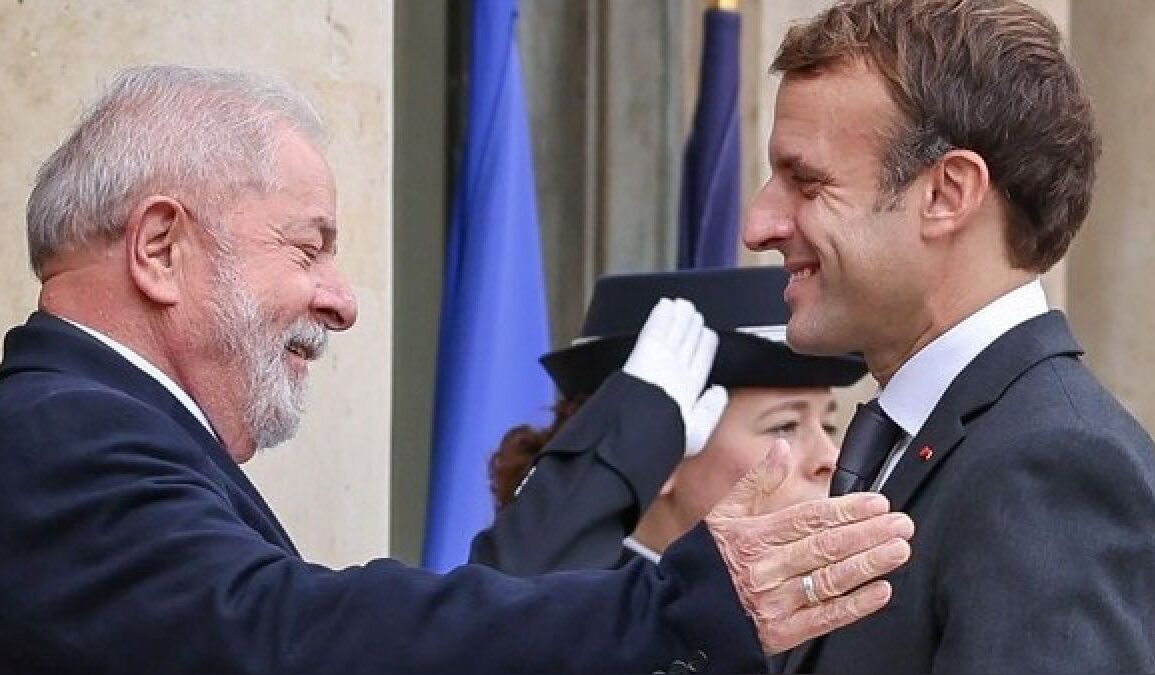When the president of Brazil, Luiz Inácio Lula da Silva, travels to Paris at the end of June 2023 to visit his French counterpart, Emmanuel Macron, it will be like visiting his neighbor, since the largest country in South America borders on the north with the overseas department of French Guiana.
Both the geographical ties and the historical relationship justify the Francophile attitude of many Brazilians: France was one of the first European countries to recognize the independence of Brazil, in 1825, while Brazil fought alongside France in the two world wars of the 20th century. France does not have such close relations with any other country on the continent as it does with Brazil.
Brazil also leaned on France to become the dominant regional power in South America. In 2000, the Government of Paris bequeathed its decommissioned aircraft carrier to the Brazilian Navy and, a few years later, agreed to build a new generation of submarines. At the end of this decade, the first nuclear submarine will be built in Brazil with French support.
A new beginning after Bolsonaro
However, the decades of good relations between the two countries bottomed out during the presidency of Jair Bolsonaro, between 2019 and 2022. Macron used to slash and burn in the Amazon region, promoted by Bolsonaro, as an excuse to block the Mercosur free trade agreement. . Bolsonaro, for his part, responded on Facebook mocking Macron’s wife, Brigitte.
When Lula, 77, begins his two-day visit to France, it will be time to celebrate a new beginning. There is no personal animosity between Macron and Lula . Quite the contrary, the ex-unionist Lula even publicly campaigned for Macron’s re-election in 2022.
“Brazil First”
However, there are great differences in matters of content of central themes. “One has to recognize in Europe that Brazil and the European Union have different geopolitical perspectives,” says political scientist and Latin America expert Peter Birle, who currently works in Brazil.
“Ultimately, Europe wants to stabilize the existing world order, Brazil wants to change it. Not fundamentally, but in such a way that Brazil has more of a voice. And it takes every opportunity to do so.”
Although Brazil condemned the Russian aggression against Ukraine in the UN General Assembly, it does not contemplate a possible break with Moscow or Beijing. In fact, Lula has repeatedly declared that Russia and Ukraine are equally guilty of the war.
Controversy over environmental protection
Lula rejects the European policy of sanctions against Russia. When German Chancellor Olaf Scholz campaigned in Brazil earlier this year for the South American country to provide ammunition for German tanks deployed in Ukraine, Lula rejected the proposal.
The political scientist Birle says that, unlike what happens in European countries, the war in Ukraine is not a turning point for Brazil, but one more international conflict. Lula hopes to act as a mediator between the parties in conflict, something that, at the moment, does not seem realistic.
But it is not only on the issue of Ukraine that a rapprochement of positions between Brazil and France is difficult. The Mercosur deal, on hold since negotiations ended in 2019, is also a matter of contention. After the arrival of Lula to power, the pressure of the EU increases to finally advance in the new ongoing negotiations.
The new role of Brazil
“You have returned Brazil to its rightful place as a global player, as a leader in the democratic world,” EU Commission President Ursula von der Leyen praised Lula during her trip to Latin America.
But the thing is not so simple if we pay attention to the details. The EU’s second-biggest trading partner locks in on an additional protocol to block stricter and more binding environmental regulations. Lula argues superior interests: “The basis between strategic partners must be mutual trust, not distrust and sanctions.”
Lula’s own concept of environmental and Amazon protection has so far failed in Congress, which is dominated by Bolsonaro supporters.
Lula, who worked persistently during his first term 20 years ago to position Brazil as a global player, sees his country strengthened by recent global events. Given that Russia is not going to supply Europe with raw materials and energy, at least in the medium term, and the EU wants to be more independent from China, the regional power has a key role. With around 22 million tons, Brazil has the second-largest reserves of rare earths in the world. In addition, its geographical and climatic conditions are ideal for the production of green hydrogen.
Macron under pressure
Brazil, on the other hand, is also interested in a relationship with the Europeans, but China, which has become its most important trading partner, offers bilateral agreements with significantly less stringent conditions.
In France, there has been resistance to Mercosur for years. Already before Lula’s visit, the National Assembly has issued a resolution calling on the government not to approve the agreement. Behind the criticism by parliamentarians of the lack of environmental standards is, above all, the concern of French farmers about growing competition from South America. The Brazilian-French restart still has some hurdles to overcome.





